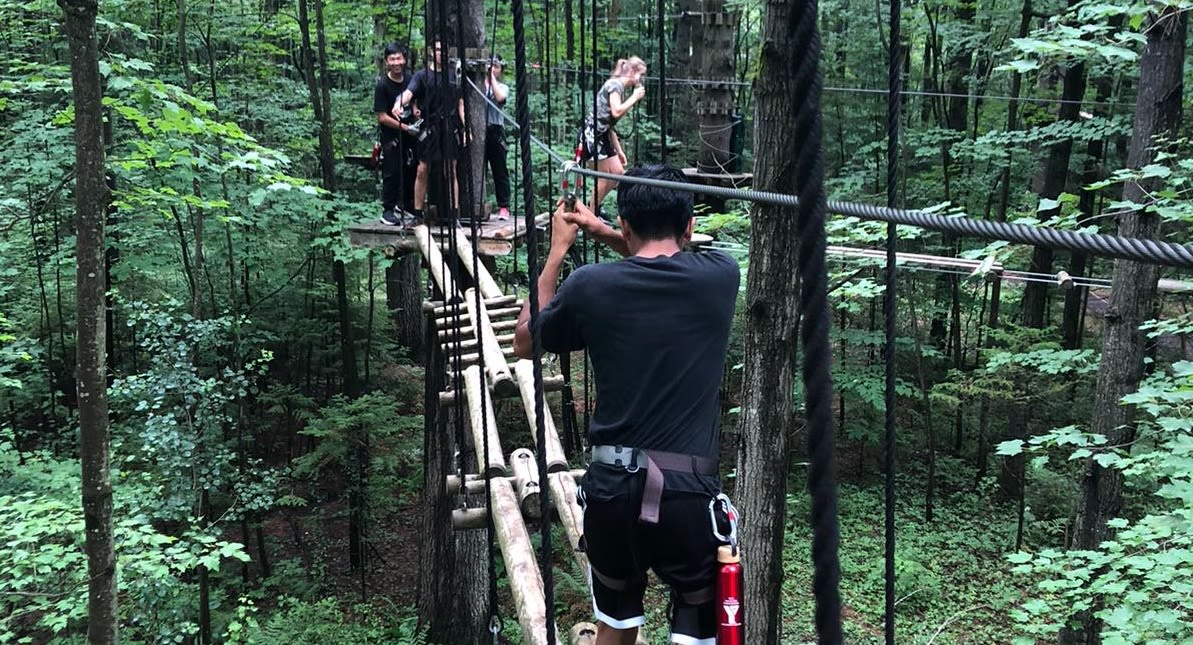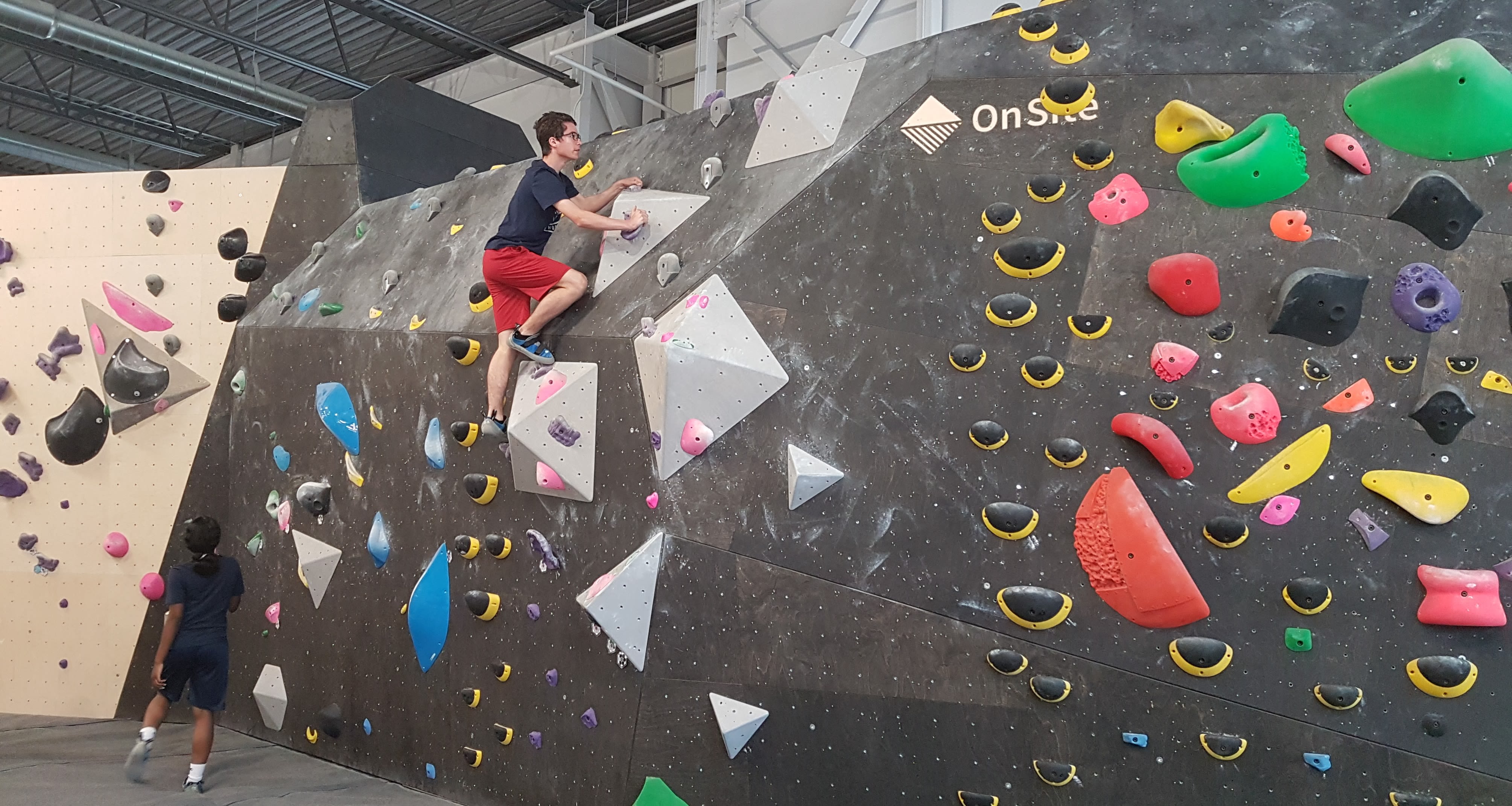Unlocking potential: The benefits of risks for youth

Do you let your teen take risks, make mistakes, and accept and learn from their experiences? It’s understandably difficult for parents and guardians to let their youth take risks, but doing so can be beneficial. Risky behaviour and positive risk can help your teen develop skills and unlock their potential — here’s how.
What are positive risks?
Risk is often thought of as something that may cause harm, but positive risk, also called opportunity risk, can positively impact young people.
For teenagers, the willingness to explore, try new things, and take risks becomes a natural tendency, according to the UCLA Center for Developing Adolescents. They encounter opportunities to grow through positive risk-taking in their daily lives, such as:
- Taking on speaking roles in a class presentation or joining a new club at school
- Building relationships with new friends or taking part in a group project
- Trying a new hobby or sport or learning a new skill
- Attending a career event or exploring an internship opportunity when they work part-time and begin their career development
Growth and skills development through risk
As parents, educators, youth workers or mentors, we should encourage youth to take positive risks. It boosts self-confidence, identity development, and many more skills. It can help prevent negative risk-taking behaviour that could be harmful or risky, such as succumbing to negative peer pressure or skipping school.
Positive risk-taking allows youth to build resilience by exposing them to challenges and uncertainty. They can learn how to bounce back from failure or navigate through adversity. They also learn how to analyze a situation, make an informed decision, and adapt to change, contributing to the development of their problem-solving skills.
Taking positive risks, such as facing new social situations and learning how to navigate relationships, develops skills like active listening and empathy. These interpersonal skills are essential for creating and maintaining meaningful connections.
Youth also learn to overcome fear and step out of their comfort zone. Positive risk-taking often involves situations that may initially create anxiety or discomfort. By facing them, youth can cultivate courage and celebrate small victories, helping expand their perspectives and encourage autonomy.

How our programs encourage healthy risk-taking
YMCA Youth Exchanges Canada (YEC)
This group exchange program helps adult leaders organize exchanges across Canada for groups of youth ages 12 to 17. Youth participants travel and discover a new part of Canada, engage in various hands-on learning experiences, and make new friends.
Participating in a YEC exchange allows youth to face positive risks by:
Living away from home: Youth are paired with another group in Canada, and each group stays in their twin group’s community for at least five days. This can be a step out of their comfort zone, but being in the safe structure of an organized exchange helps overcome apprehension.
Meeting new friends: YEC pairs groups based on youth age ranges and affinities. Participants meet peers from other Canadian provinces and have the chance to create lifelong friendships. Activities are planned during the exchange to allow youth to get to know each other.
Fundraising and volunteering: Youth get the opportunity to raise funds for part of their exchange or organize volunteering activities for their twin group. This allows youth to develop skills like teamwork and collaboration and learn how to adapt to social situations. The YEC team provides resources to help youth organize successful activities.
Planning activities: Each group organizes and plans activities for their visiting twin group, which helps develop skills such as organization, problem-solving, and adaptability. Plus, participating in activities allows youth to bond with each other.
YMCA Summer Work Student Exchange (SWSE)
This six-week program offers youth ages 16–17 the opportunity to gain paid work experience, practise French, and discover another community within Canada.
Participating in the SWSE program allows youth to take positive risks by:
Working full-time: SWSE provides youth with a full-time paid job in the public sector or with a non-profit organization, allowing youth to grow valuable skills for the future. For most of our participants, this is their first job experience. SWSE partners with more than 400 trusted organizations and participants are asked about their preferred areas of employment.
Learning French: As the SWSE program is a language-based exchange, youth live and work in a French-speaking community for six weeks. No minimal language proficiency is required to register so youth can learn or improve their French skills. Our local coordinators are bilingual and support participants throughout the program.
Living away from home: Youth live with a host family during the six-week exchange, allowing participants to learn how to adapt to a new social context. Our staff ensures that youth and their host families are well-matched to ensure comfort and respect for everyone.
Participating in organized activities: During the summer exchanges, activities are organized every weekend and one weekday night. Youth spend time bonding with other SWSE participants, building new relationships, and experiencing new things. These activities are organized by our Local Coordinators, who ensure that every participant feels included and at ease.

Taking positive risks helps youth to grow into successful, resilient adults. Participating in exchange programs like YEC and SWSE is often the first time young people are away from home in a new community, having new experiences and meeting new people. While this can be challenging, structured exchange programs provide a safe space to help young people overcome their apprehensions and fears so they learn, grow, and have the experience of a lifetime.
If you want to learn more about the YMCA exchange programs, please visit our websites or contact us:
YMCA Youth Exchanges Canada:
Website: www.ymcagta.org/yec
Email: Info.yec@ymcagta.org
YMCA Summer Work Student Exchange:
Website: www.ymcagta.org/swse
Email: Info.swse@ymcagta.org
French version here











